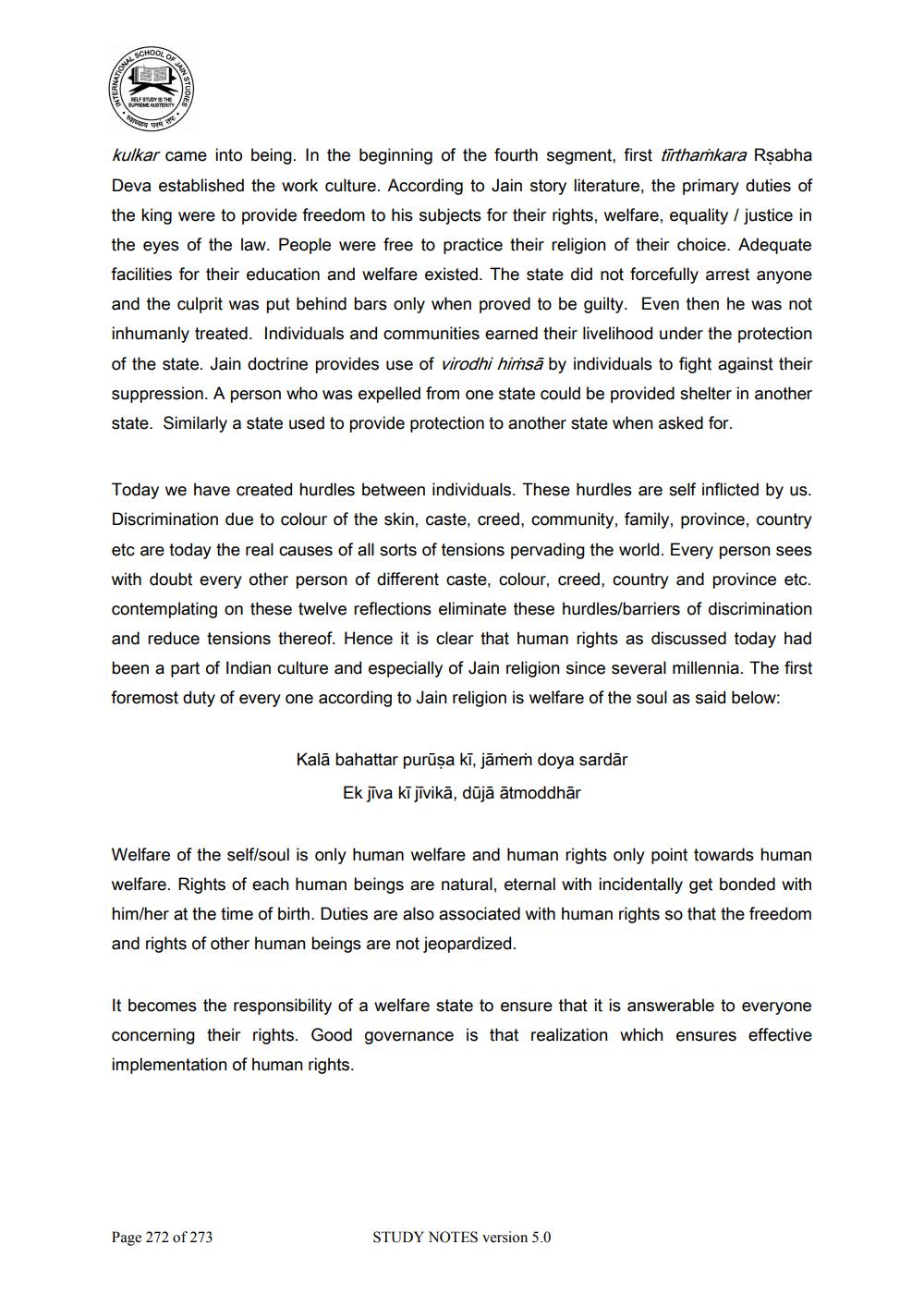________________
kulkar came into being. In the beginning of the fourth segment, first tirthaṁkara Rşabha Deva established the work culture. According to Jain story literature, the primary duties of the king were to provide freedom to his subjects for their rights, welfare, equality / justice in the eyes of the law. People were free to practice their religion of their choice. Adequate facilities for their education and welfare existed. The state did not forcefully arrest anyone and the culprit was put behind bars only when proved to be guilty. Even then he was not inhumanly treated. Individuals and communities earned their livelihood under the protection of the state. Jain doctrine provides use of virodhi hiṁsā by individuals to fight against their suppression. A person who was expelled from one state could be provided shelter in another state. Similarly a state used to provide protection to another state when asked for.
Today we have created hurdles between individuals. These hurdles are self inflicted by us. Discrimination due to colour of the skin, caste, creed, community, family, province, country etc are today the real causes of all sorts of tensions pervading the world. Every person sees with doubt every other person of different caste, colour, creed, country and province etc. contemplating on these twelve reflections eliminate these hurdles/barriers of discrimination and reduce tensions thereof. Hence it is clear that human rights as discussed today had been a part of Indian culture and especially of Jain religion since several millennia. The first foremost duty of every one according to Jain religion is welfare of the soul as said below:
Kalā bahattar purūsa kī, jāņem doya sardār
Ek jīva ki jīvikā, dūjā ātmoddhār
Welfare of the self/soul is only human welfare and human rights only point towards human welfare. Rights of each human beings are natural, eternal with incidentally get bonded with him/her at the time of birth. Duties are also associated with human rights so that the freedom and rights of other human beings are not jeopardized.
It becomes the responsibility of a welfare state to ensure that it is answerable to everyone concerning their rights. Good governance is that realization which ensures effective implementation of human rights.
Page 272 of 273
STUDY NOTES version 5.0




